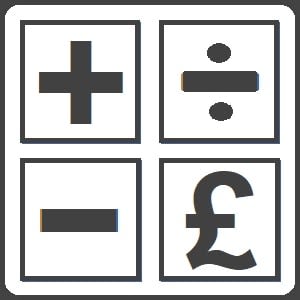Does HMRC Investigate Large Deposits in Bank Account?

In the world of tax, one question we often hear from clients is:
“If I receive a large deposit into my bank account, will HMRC investigate?”
The short answer? Possibly, but not automatically. See below for more details. Unlike some other countries, there’s no official threshold where banks must report large deposits directly to HMRC. However, large or unexplained deposits that do not align with declared income can, and often do attract scrutiny.
What We Know. And What We Don’t.
Neither HMRC nor the banks have published clear-cut rules that say “X amount will be investigated.” But what we do know is:
- Banks are regulated under anti-money laundering laws and are required to monitor for suspicious activity.
- If a deposit seems unusual — say, frequent high-value cash transactions, foreign remittances with no clear source, or payments not matching your business pattern — banks may file a Suspicious Activity Report (SAR).
- SARs are not shared with the account holder and may be passed to law enforcement or tax authorities.
- HMRC operates an advanced data analysis system called Connect, which cross-checks data from bank accounts, tax returns, property records, and more.
If you declare low income but have high inflows into your account, Connect may flag your case for review.
What Counts as “Unexplained”?
Recently HMRC issued a £350,000 tax bill to the owner of a taxi business who failed to declare income linked to bank deposits used for property purchases. The deposits were traced back to his business account and treated as taxable income after failing to provide adequate evidence.
Now we know it is important. Then you need to know what counts as unexplained deposits. They might include: Undeclared business income; Cash payments without invoices; Transfers from abroad with no explanation; Crypto cash-outs not declared; Personal gifts or loans that are not documented properly.
So, Do Banks Report You to HMRC?
Not by default. But Banks are obliged to report suspicious transactions under AML laws. HMRC does not rely on banks alone — their internal data tools are powerful and designed to detect inconsistencies in lifestyle versus declared income. HMRC can request bank records if they suspect underreporting or fraud — and if you’re under enquiry, they will check.
What Should You Do If You Receive a Large Deposit?
So what should you do if you receive a large deposit in your bank account. There will be times to receive monies, transfer, deposit of large sum sometimes, no matter it is from another personal account, or overseas accounts. It may well be normal activities but some items you may want to observe. Here’s our guidance. Document the source, whether it’s a gift, loan, sale, or business income. Ensure it aligns with your tax position, if it’s taxable, report it. Don’t ignore it, just because it’s not “flagged,” doesn’t mean it’s invisible. Speak to your accountant, if you’re unsure whether a deposit needs to be declared, we’re here to help.
Final Word: Don’t Assume. Stay Compliant.
We are qualified UK practising accountants, fully registered as HMRC Tax Agents, and regulated for anti-money laundering compliance. We understand how HMRC interprets unexplained wealth and deposits, and how to prepare you.
Not all accountants are trained or authorised to deal with HMRC investigations or large transaction disclosures, we are.
If you’re worried about large deposits or HMRC enquiries, talk to your accountant (that’s us). It’s far easier to explain it before HMRC asks, than to defend it afterthey do.
#HMRCinvestigation #bankdeposit #uktax #foreignincome #undeclaredincome #AML #taxadvisory #ukaccountant #taxagent #HMRCcheck #uktaxation #personalfinance #companytax #selfemployed #uktaxfiling #Connectsystem
Contact Us
Send a Message
Get in touch to discuss with us how we can best assist you.
